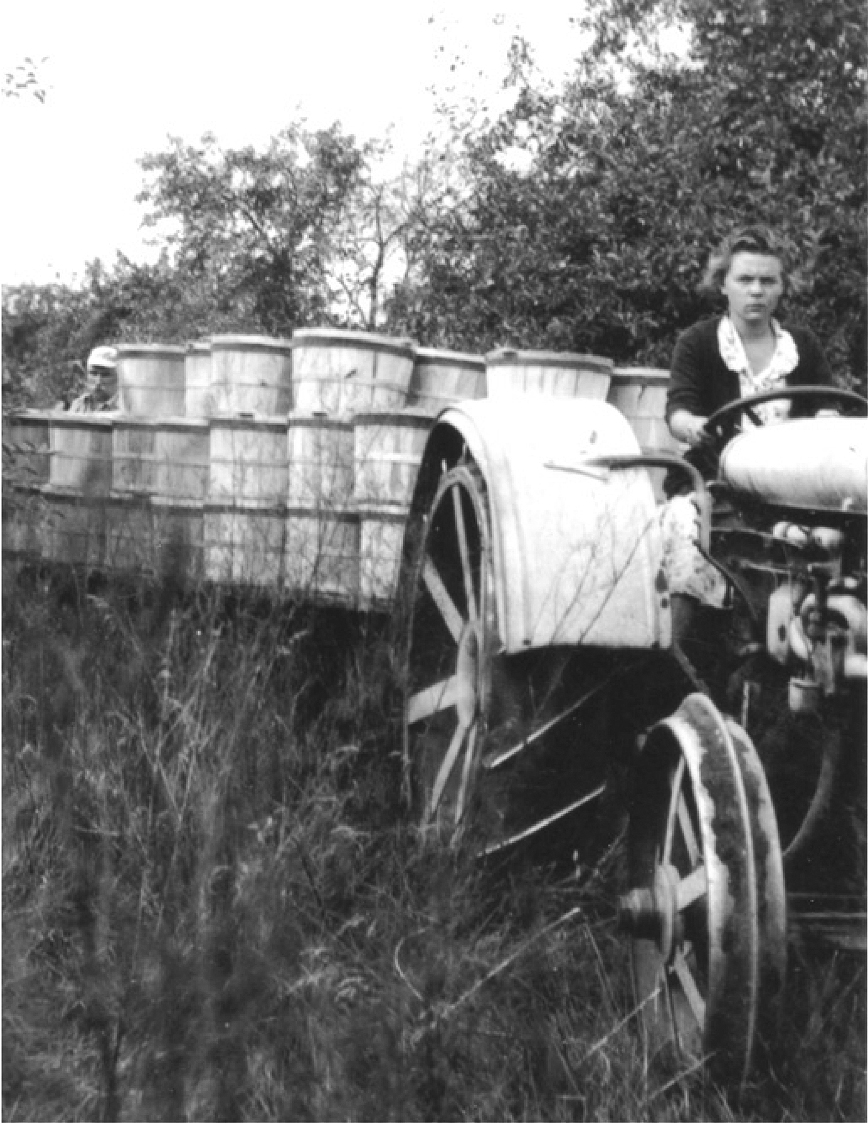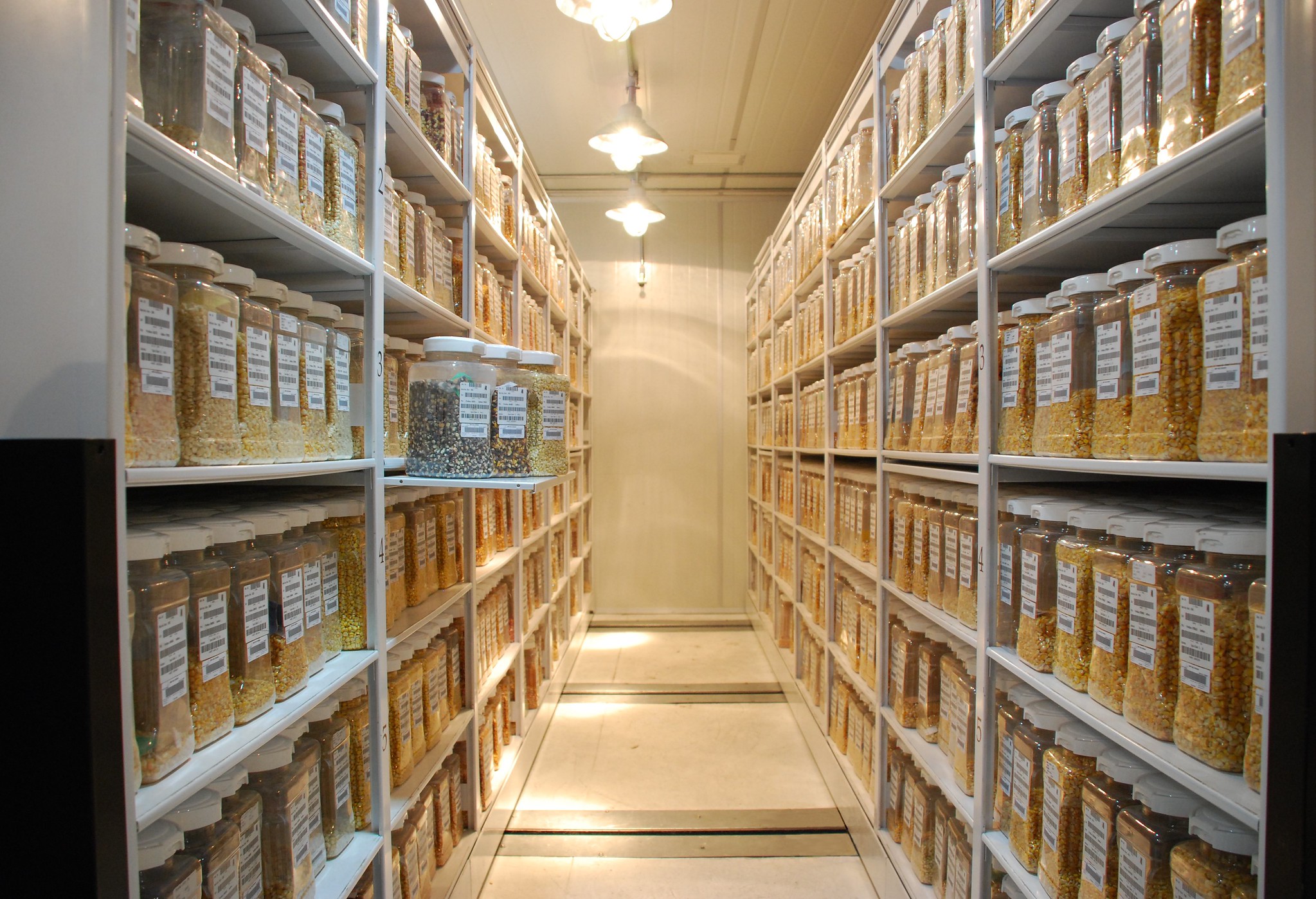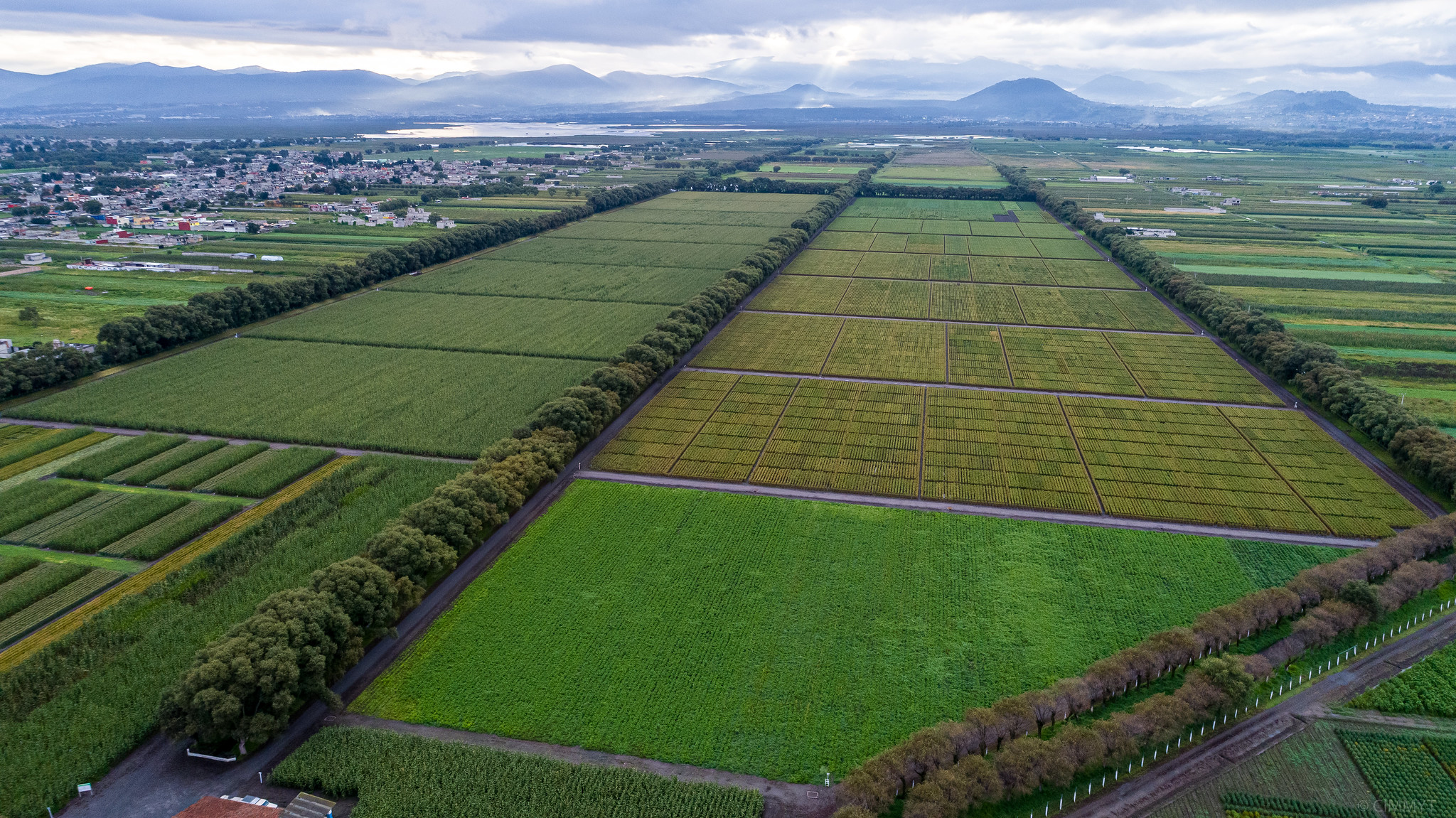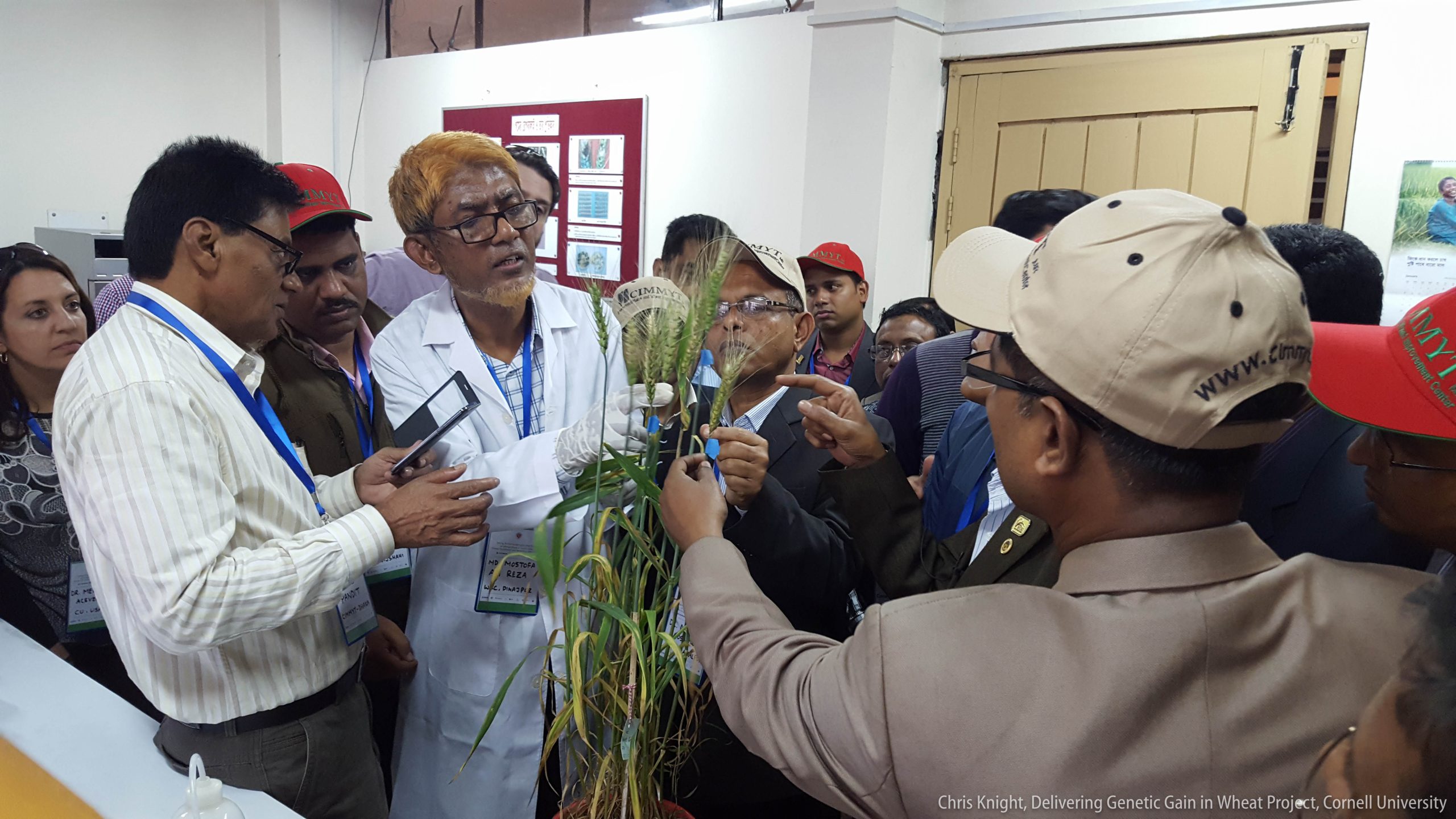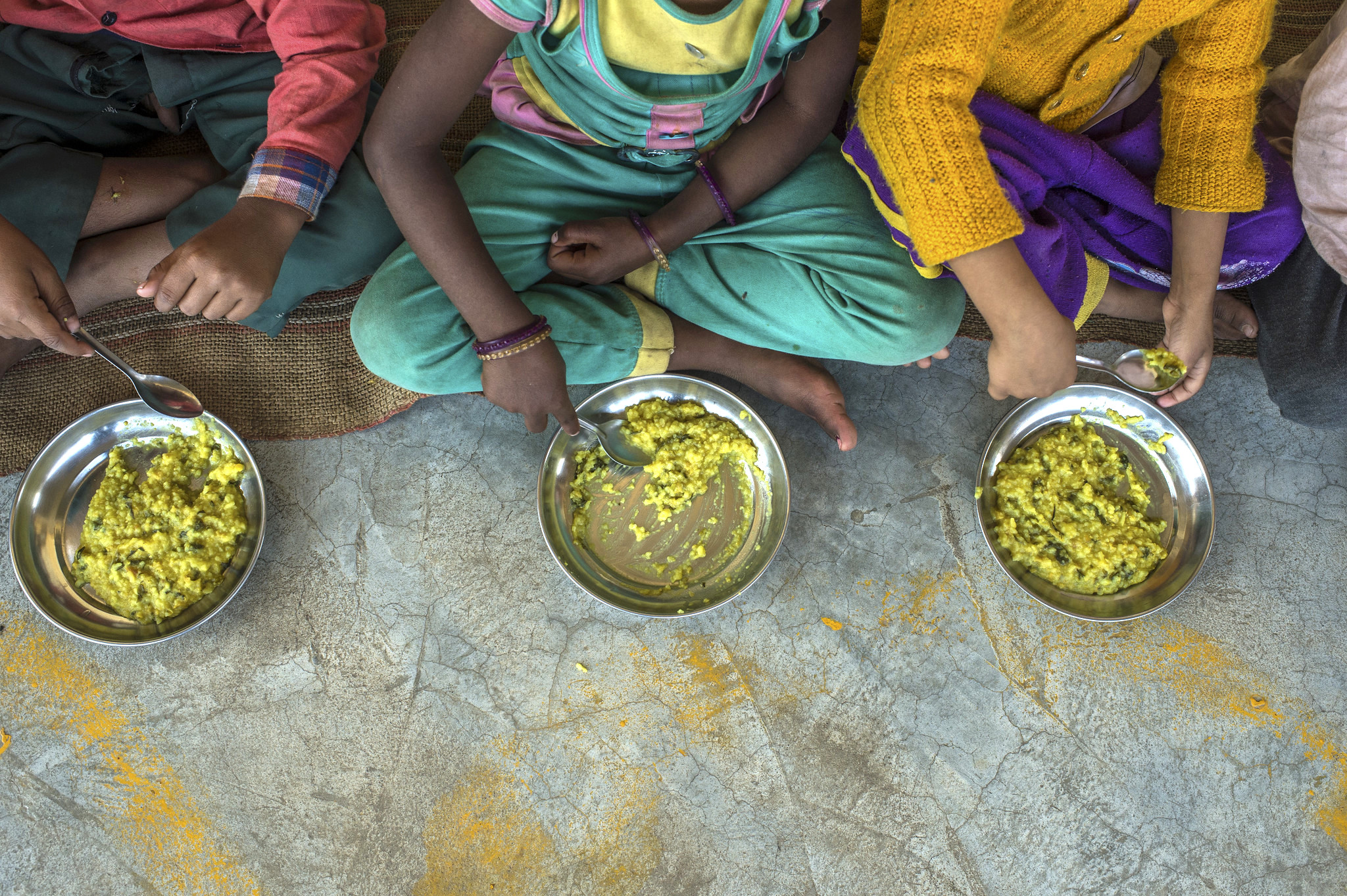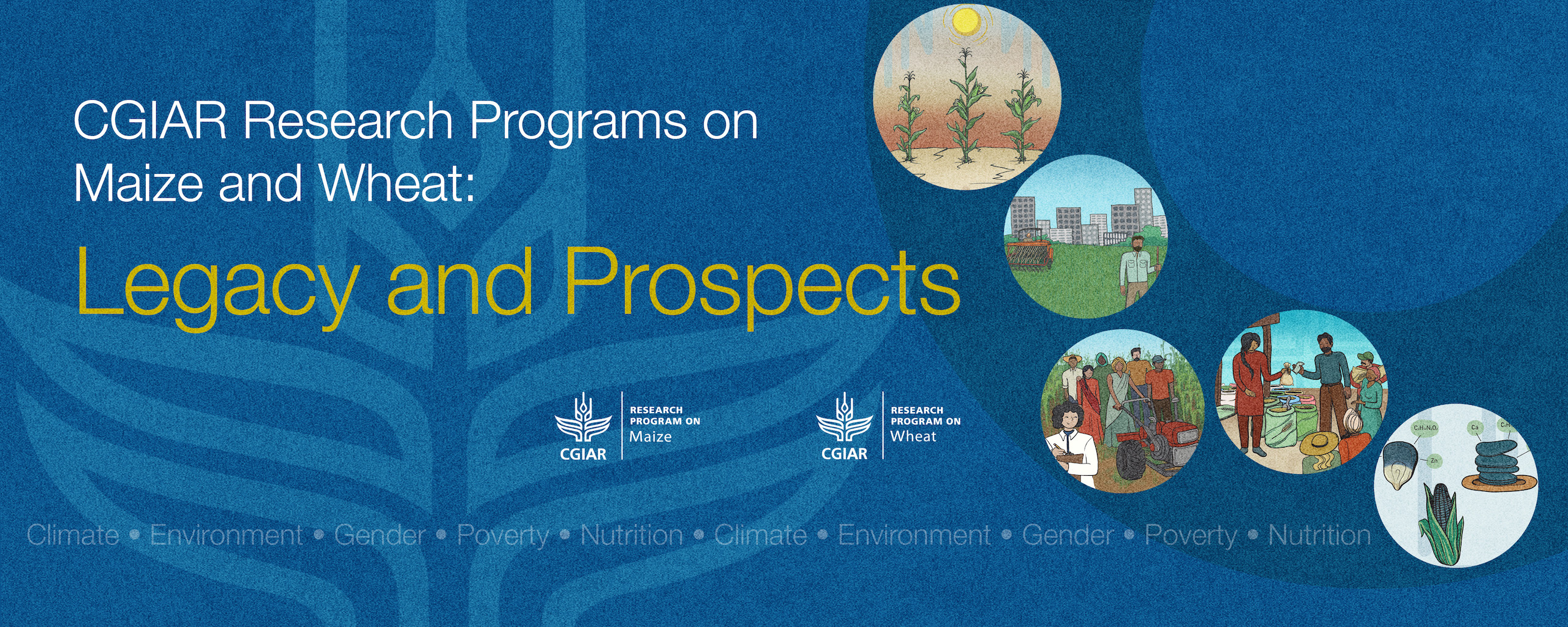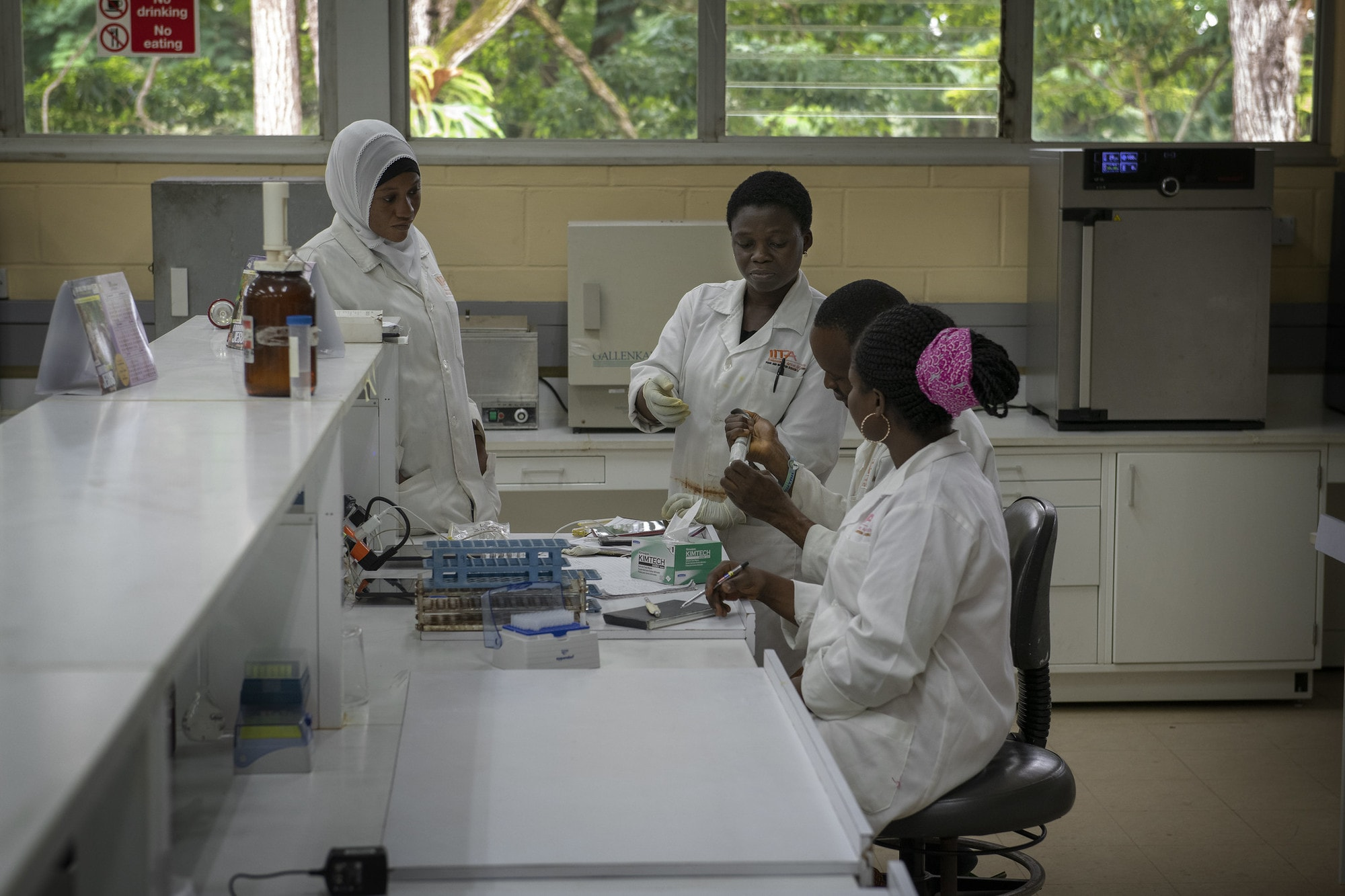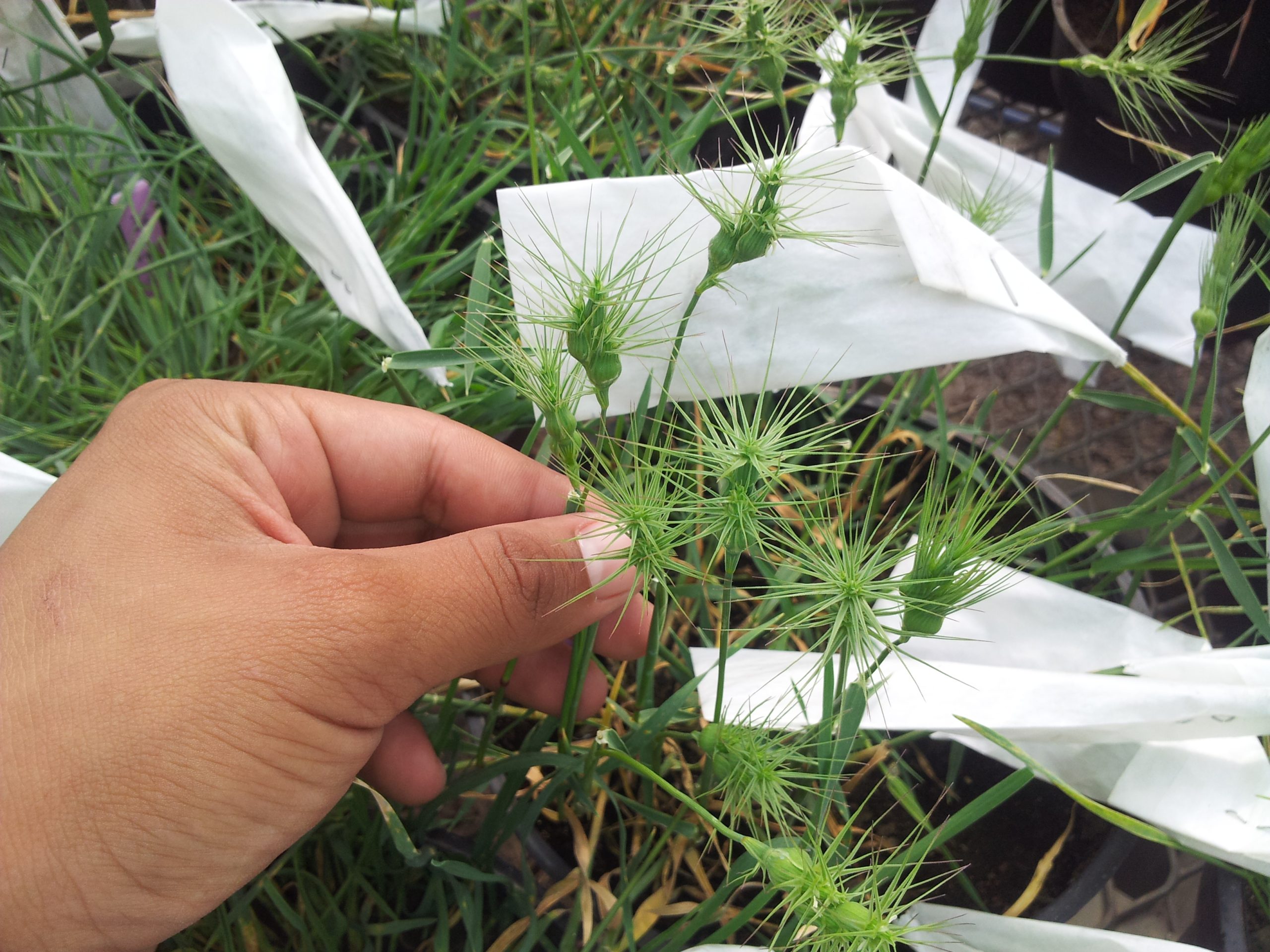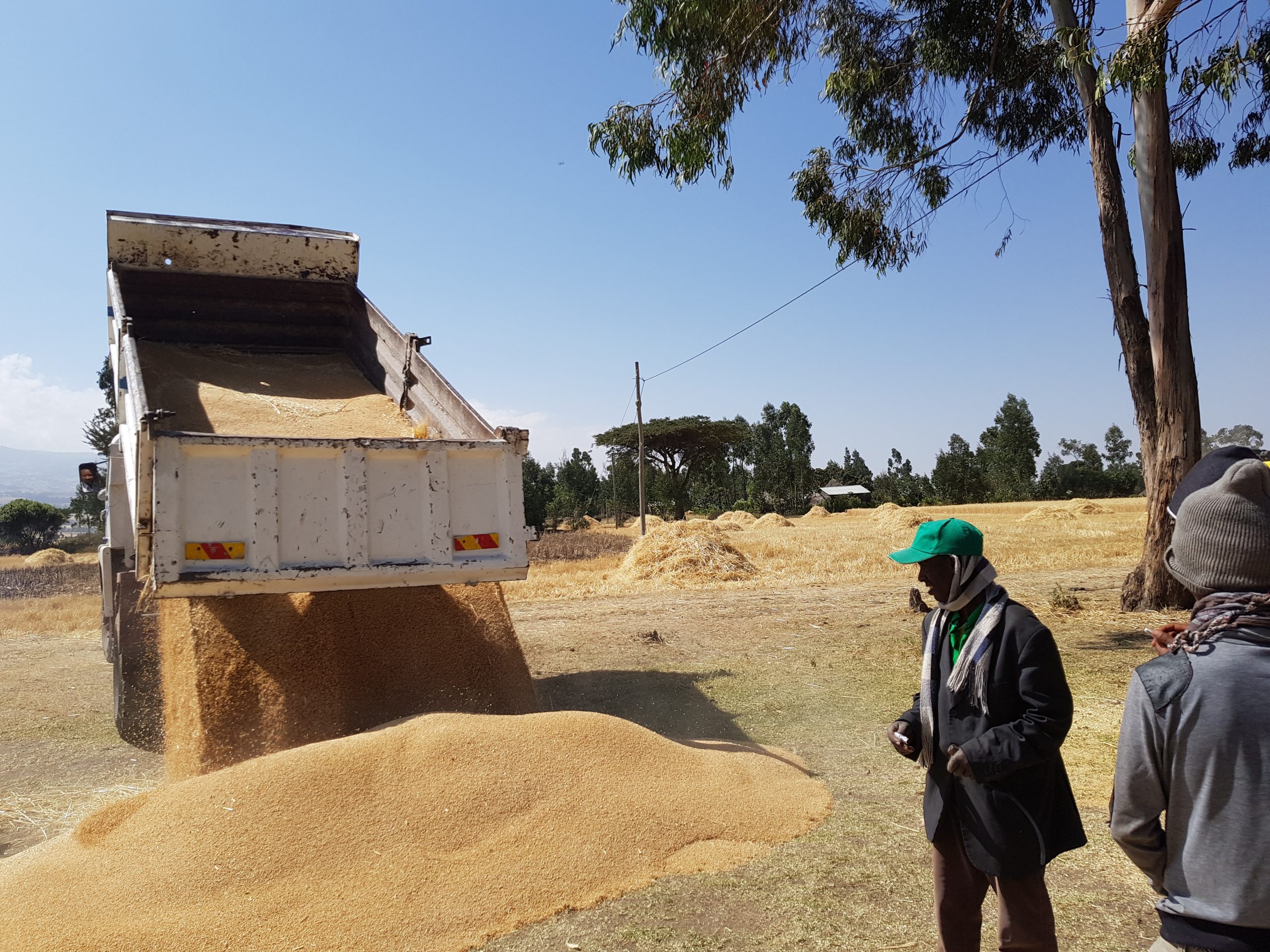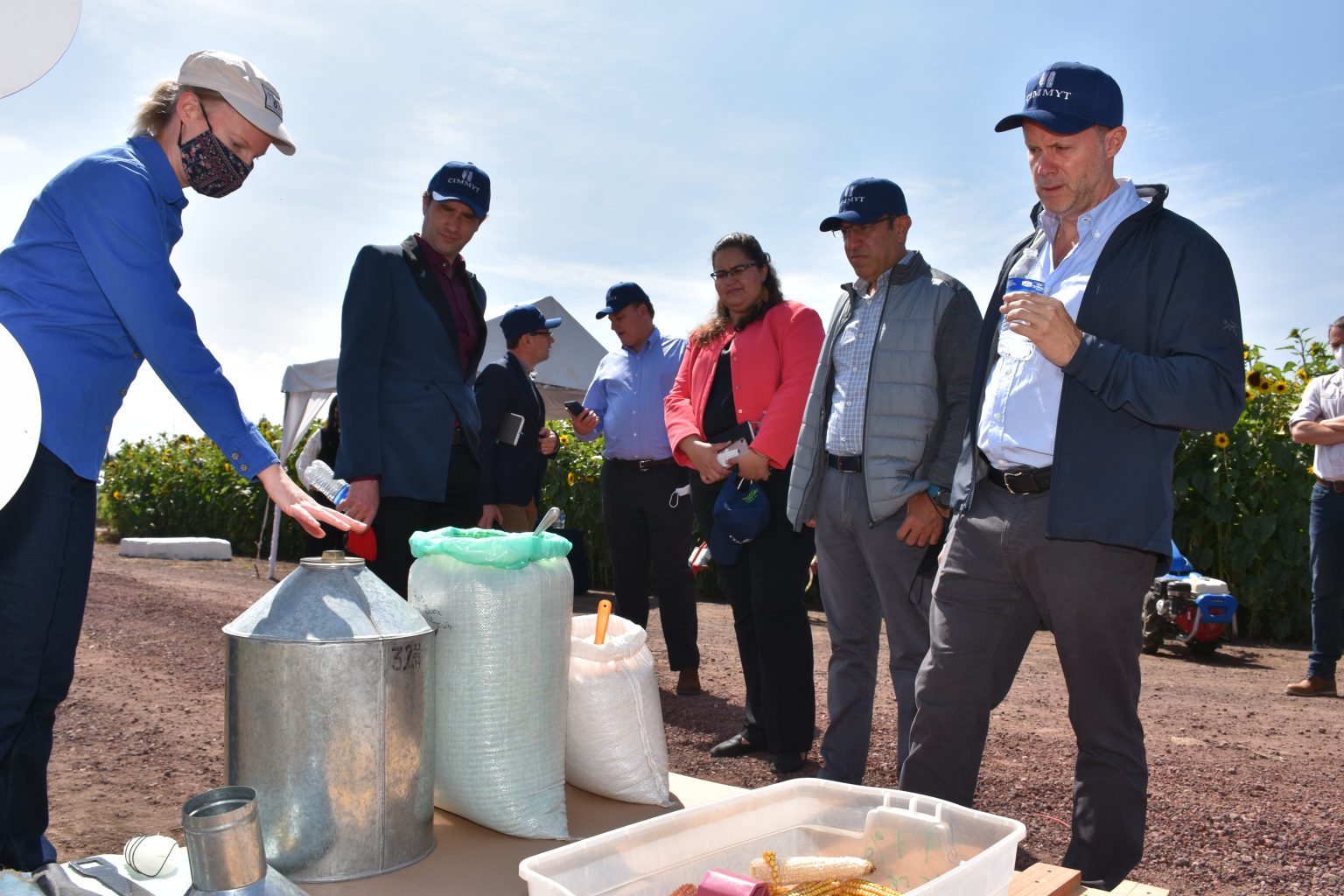Genetic resources
Celebrating the life of Rosalind Morris, trailblazer for women in agriculture
 Gender equality, youth and social inclusion
Gender equality, youth and social inclusion
An outstanding wheat cytogeneticist and professor, she peacefully passed away a few weeks shy of her 102nd birthday.
Our food system isn’t ready for the climate crisis
 Environmental health and biodiversity
Environmental health and biodiversity
Source: The Guardian (14 Apr 2022)
“We’ll never get back all the diversity we had before, but the diversity we need is out there,” says Matthew Reynolds, head of wheat physiology at CIMMYT.
Seed banks: the last line of defense against a threatening global food crisis
 Environmental health and biodiversity
Environmental health and biodiversity
Source: The Guardian (15 Apr 2022)
As climate breakdown and worldwide conflict continue to place the food system at risk, seed banks from the Arctic to Lebanon try to safeguard biodiversity.
New endeavor fast-tracks the power of crop diversity for climate resilience
 Climate adaptation and mitigation
Climate adaptation and mitigation
Researchers will source useful gene variations from CGIAR genebanks to develop climate-smart crops.
CIMMYT deeply regrets the passing of leading agriculture and forestry research expert Barbara H. Wells
As Director General of the International Potato Center (CIP) and as CGIAR’s Global Director for Genetic Innovation, Wells helped improve the health and livelihoods of millions of people.
Plant breeding innovations
 Climate adaptation and mitigation
Climate adaptation and mitigation
Over millennia, natural selection and humans have systematically adapted the plant species that provide food and other vital products, changing their physical and genetic makeup for enhanced productivity, nutrition and resilience. Plant breeders apply science to continue improving crop varieties, making them more productive and better adapted to climate extremes, insects, drought and diseases.
New publications: Genome-wide breeding to curtail wheat blast
 Environmental health and biodiversity
Environmental health and biodiversity
Researchers evaluate the use of genomic selection in wheat breeding against deadly fungal disease.
Meet The Indian Researcher Helping To Solve The Deadly Aflatoxin Puzzle
 Nutrition, health and food security
Nutrition, health and food security
Source: Forbes (29 Dec 2022)
Pooja Bhatnagar-Mathur, a Principal Scientist at CIMMYT, says aflatoxin, a toxin produced from soil fungus and found in groundnuts like peanuts, is a serious public health and food safety problem around the globe.
Agricultural research fights global food shocks
 Nutrition, health and food security
Nutrition, health and food security
Source: Newsweek (30 Dec 2021)
The best protection is actually reducing food system risks by building food system resilience against shocks.
High-yielding staple crops improve health and prosperity in developing countries
 Nutrition, health and food security
Nutrition, health and food security
New research uncovers long-term impacts of Green Revolution era productivity, points out lessons for today.
A decade of world-leading maize and wheat research
 Capacity development
Capacity development
Legacy websites and photo exhibition mark the closing of the CGIAR Research Programs on Maize and Wheat, and their impact on sustainable agricultural development.
Harnessing the power of science to reduce poverty and malnutrition
 Nutrition, health and food security
Nutrition, health and food security
Bringing wild wheat’s untapped diversity into elite lines
 Environmental health and biodiversity
Environmental health and biodiversity
Researchers hypothesized that many wild wheat accessions in genebanks feature useful traits that can help diversify breeding programs.
Is a pluralistic seeds system a pathway to seed security in Ethiopia?
 Nutrition, health and food security
Nutrition, health and food security
Efforts to support inclusive and equitable access to seeds by farmers should recognize the different seed systems and the complementarity of formal and informal seed systems.
World-class laboratories and research fields to the service of Mexico and the world
 Innovations
Innovations
Representatives of the Carlos Slim Foundation and Mexico’s National Agriculture Council (CNA) agree on the importance of collaboration between the public and private sectors, civil society and research organizations like CIMMYT.
